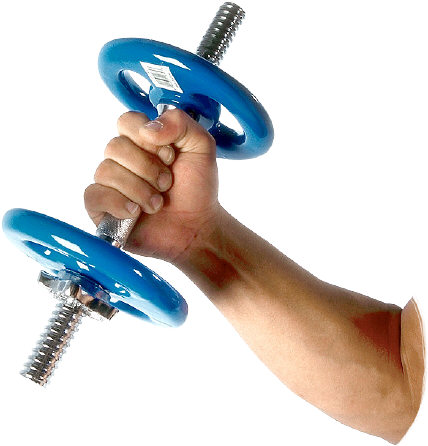--------------------------------------------------------------------------------------
Exercise and aging: Can you walk away from Father Time?
(This article was first printed in the December 2005 issue of the Harvard Men’s Health Watch. For more information or to order, please go to http://www.health.harvard.edu/mens.)
The clock ticks for all men, and with each tick comes change. For men who manage to avoid major medical problems, the changes are slow and gradual, but they do add up. Here are some things that aging can do to you — if you give up and let Father Time take his toll.
Some of the changes of aging start as early as the third decade of life. After age 25–30, for example, the average man’s maximum attainable heart rate declines by about one beat per minute, per year, and his heart’s peak capacity to pump blood drifts down by 5%–10% per decade. That’s why a healthy 25-year-old heart can pump 2½ quarts of oxygen a minute, but a 65-year-old heart can’t get above 1½ quarts, and an 80-year-old heart can pump only about a quart, even if it’s disease-free. In everyday terms, this diminished aerobic capacity can produce fatigue and breathlessness with modest daily activities.
Starting in middle age, a man’s blood vessels begin to stiffen and his blood pressure often creeps up as well. His blood itself changes, becoming more viscous (thicker and stickier) and harder to pump through the body, even though the number of oxygen-carrying red blood cells declines.
Most Americans begin to gain weight in midlife, putting on 3–4 pounds a year. But since men start to lose muscle in their 40s, that extra weight is all fat. This extra fat contributes to a rise in LDL (“bad”) cholesterol and a fall in HDL (“good") cholesterol. It also helps explain why blood sugar levels rise by about 6 points per decade, making type 2 diabetes distressingly common in senior citizens.
The loss of muscle continues, eventually reducing a man’s musculature by up to 50%, which contributes to weakness and disability. At the same time, muscles and ligaments get stiff and tight. Although men have a lower risk of osteoporosis (“thin bones”) than women, they do lose bone calcium as they age, increasing the risk of fractures. One reason for the drop in muscle mass and bone density is a drop in the male hormone testosterone, which declines by about 1% per year after the age of 40. Though most men continue to have normal testosterone levels and reproductive capacity throughout life, many experience a gradual decline in libido and sexual vigor.
The nervous system also changes over time. Reflexes are slower, coordination suffers, and memory lapses often crop up at embarrassing times. The average person gets less sleep in maturity than in youth, even if he no longer needs to set his alarm clock. Not surprisingly, spirits often sag as the body slows down.
It sounds grim — and these changes happen to healthy men. Men with medical problems start to age earlier and slow down even more. All in all, aging is not for sissies.
No man can stop the clock, but every man can slow its tick. Research shows that many of the changes attributed to aging are actually caused in large part by disuse. It’s new information, but it confirms the wisdom of Dr. William Buchan, the 18th-century Scottish physician who wrote, “Of all the causes which conspire to render the life of a man short and miserable, none have greater influence than the want of proper exercise.” And about the same time, the British poet John Gay agreed: “Exercise thy lasting youth defends.”
Exercise is not the fountain of youth, but it is a good long drink of vitality, especially as part of a comprehensive program. And a unique study from Texas shows just how important exercise can be.
Exercise is one way to slow the aging process, but it works best in combination with other measures. Here are some other tips to help you age well:
-Avoid tobacco in all its forms.
-Eat properly. Reduce your consumption of saturated fat, trans fatty acids, and cholesterol. The omega-3s and monounsaturated fats in fish, nuts, olive oil, and possibly canola oil are desirable in moderation. Eat lots of fruits, vegetables, whole grains, and nonfat dairy products. Favor complex carbohydrates and high-fiber foods, but reduce your consumption of simple sugars. Get about 15% of your calories from protein. Cut back on salt and processed foods. Keep your caloric consumption down and stay as lean as possible.
-Consider simple supplements such as a daily multivitamin and low-dose aspirin (81 mg a day).
-If you choose to drink, be responsible, and limit yourself to two drinks a day.
-Keep your mind active and stimulated. Mental exercise is an important complement to physical exercise.
-Build strong social networks. People are good medicine at any age.
-Get regular medical care. Good medicine is good medicine.
-A balanced program is best. That’s why Cicero proclaimed, “Exercise and temperance will preserve something of our youthful vigor, even into old age.”
Beat the clock
Aging is inevitable, but it has an undeservedly fearsome reputation. No man can stop the clock, but most can slow its tick and enjoy life as they age with grace and vigor. Jonathan Swift was right when he said, “Every man desires to live long, but no man would be old.” Regular exercise, along with a good diet, good medical care, good genes, and a bit of luck, can make it happen.
Exercise and longevity — it’s Darwin redux: The survival of the fittest.





